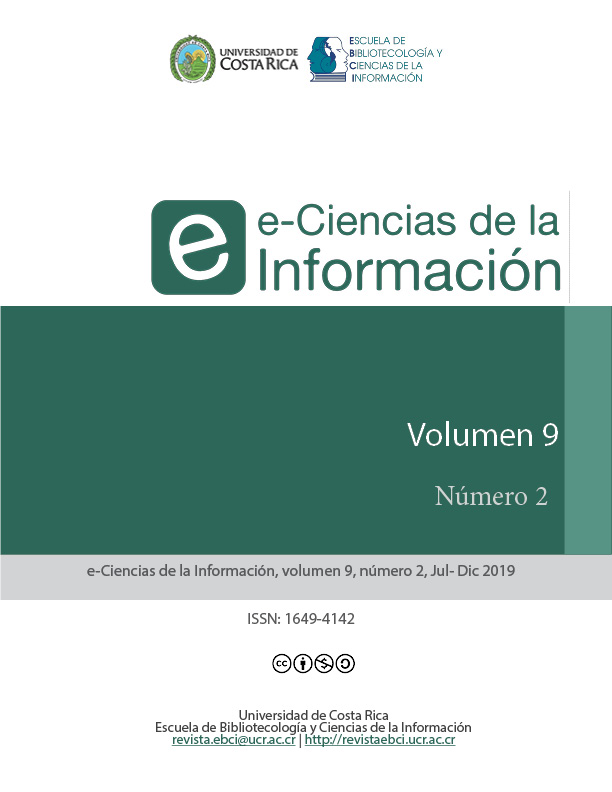Abstract
This article presents a research on the teaching of Information Literacy (IL) in elementary education, whose objective is to determine the best practices for its implementation and to identify the topics that need to be incorporated into such an initiative, as well as the ways of facing the problem of information saturation; so that students learn to search, retrieve, select, evaluate and communicate information, in order to acquire knowledge, competences and attitudes. The methodology employed was based on the qualitative analysis of experiences, which allowed us to concluded that IL has been successfully implemented through the use of educational games, digital applications for its teaching, specific courses on the subject, board games, Boolean search techniques, teaching through drawing, and instruments for the evaluation and use of educational resources. The main achievement was to contribute to the development of the competences that students need to perform successfully in school and to reach the capacity required for lifelong learning.



